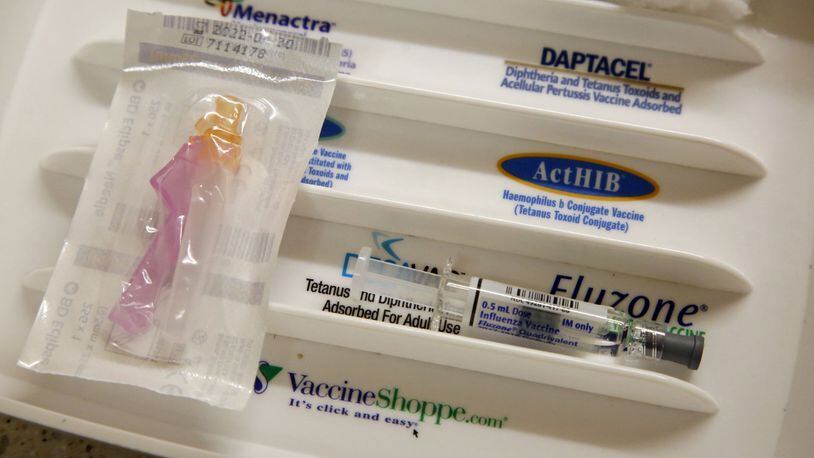Botts hopes as she said City Manager Joshua Smith told her, the city will receive better services through the county. She worries some of Hamilton’s residents with most fragile health won’t receive immunizations they have in recent years.
In addition to two full-time nurses, another position has been cut as part of Hamilton’s 2019 budget: the position of city garage superintendent, as part of a restructuring.
The nurses stopped providing services at the end of November, said Tom Vanderhorst, Hamilton’s executive director of external services. One took a job in Springdale and the other will retire in early 2019.
“This is really being driven by pressures from the state,” Vanderhorst recently told Hamilton City Council. “They have cut local-government funds. They actually will pay us up to $108,000 to consolidate these sort of services, so this is something they’re actually striving toward.”
Vanderhorst said the city and Butler County Health Department have tentatively agreed on a cost-for-service arrangement that the county prosecutor’s office is reviewing.
Hamilton’s public-health nurses in recent months played a significant role in limiting the spread of hepatitis A in the city. They vaccinated more than 900 Butler County jail inmates by October, using state-provided inoculations. They also vaccinated homeless people, soup-kitchen users, and people in drug-rehabilitation centers who were intravenous drug users.
Botts, not a public-health nurse, is one of several who advocated for keeping the nurses. She had wondered whether the city would be allowed to cut the public-health nurses. That’s because after voters approved an income-tax increase in May of 1990, then-City Manager Hal Shepherd announced he would immediately start working to hire three public-health nurses with the funding. They were working by that September.
City officials told Botts they were allowed to cut the city’s nursing program because they planned to pass the revenues from that tax levy on to the county to provide those services, in keeping with the levy promise.
She said Smith told her the goal is to “end up with even better services than what we had,” Botts said. “I hope that comes to pass, because public health is such an important area.”
In 2010, Hamilton had about 750 full-time employees. City government has about 665 full-time-equivalent positions. The city has contracted for some of those services, but even with the payments Hamilton makes for those contracts, the city is spending less than it did for employee salaries and benefits than it did in 2008.
About the Author
